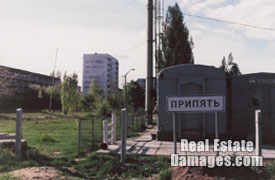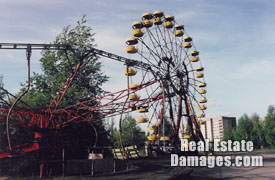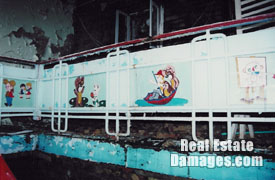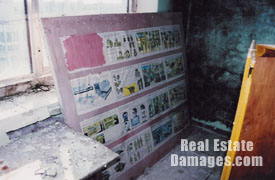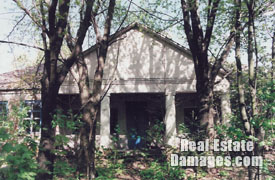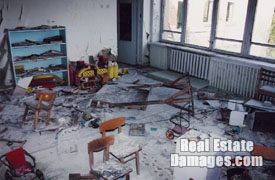Research
Chernobyl
North of Kiev, Ukraine
Class VIII - Environmental Condition, Full Scale Nuclear Meltdown
![]()
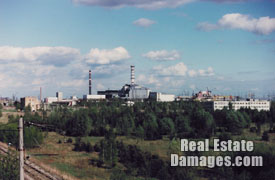 |
View of Chernobyl from Bridge over Prypyat River |
The village of Chernobyl sits on the Prypyat River, just across from the city of Prypyat. The nuclear power plant is located in the former Soviet Union, and consisted of four nuclear reactors and two more that were under construction. On April 26, 1986, an unauthorized test set off a technically confusing chain of events that resulted in the world's second nuclear meltdown, the first being at Three Mile Island. But unlike Three Mile Island, where the reactors sit in solid concrete enclosures, the Chernobyl reactors sit in four six-story enclosures constructed out of typical building materials.
The structure caught on fire and released radioactive waste that contaminated the entire Soviet State of Belarus to the north. The radioactivity was detected as far away as Ireland and South Africa. A series of events led to the ultimate environmental disaster, the world's first full-scale nuclear meltdown.
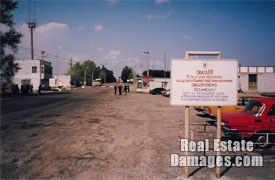 |
Chernobyl Entry Gate |
Today, Chernobyl consists of a 17-mile radius "exclusion zone" that surrounds the epicenter of the disaster. Access past this area is highly restricted because of the high levels of radioactivity.
Much of the area consists of bulldozed towns and deserted villages, including the deserted city of Prypyat. Officially, nobody is to reside within the zone and no materials are to be removed, but unofficially there are "re-settlers", elderly who have moved back to their old villages. Also, materials are salvaged.
|
|
||||
|
|
||||
|
|
The accident itself occurred in Reactor 4, which has been enclosed by a hastily constructed concrete "sarcophagus". The walls and roof of this 10-story structure have inadequate bracing and could fail within the near future.
To the surprise of some, three of Chernobyl reactors still operate today. Reactor 4 sits directly next to Reactor 3. If the "sarcophagus" falls toward this other reactor, there could be another nuclear meltdown.
<<Return to Research Page

